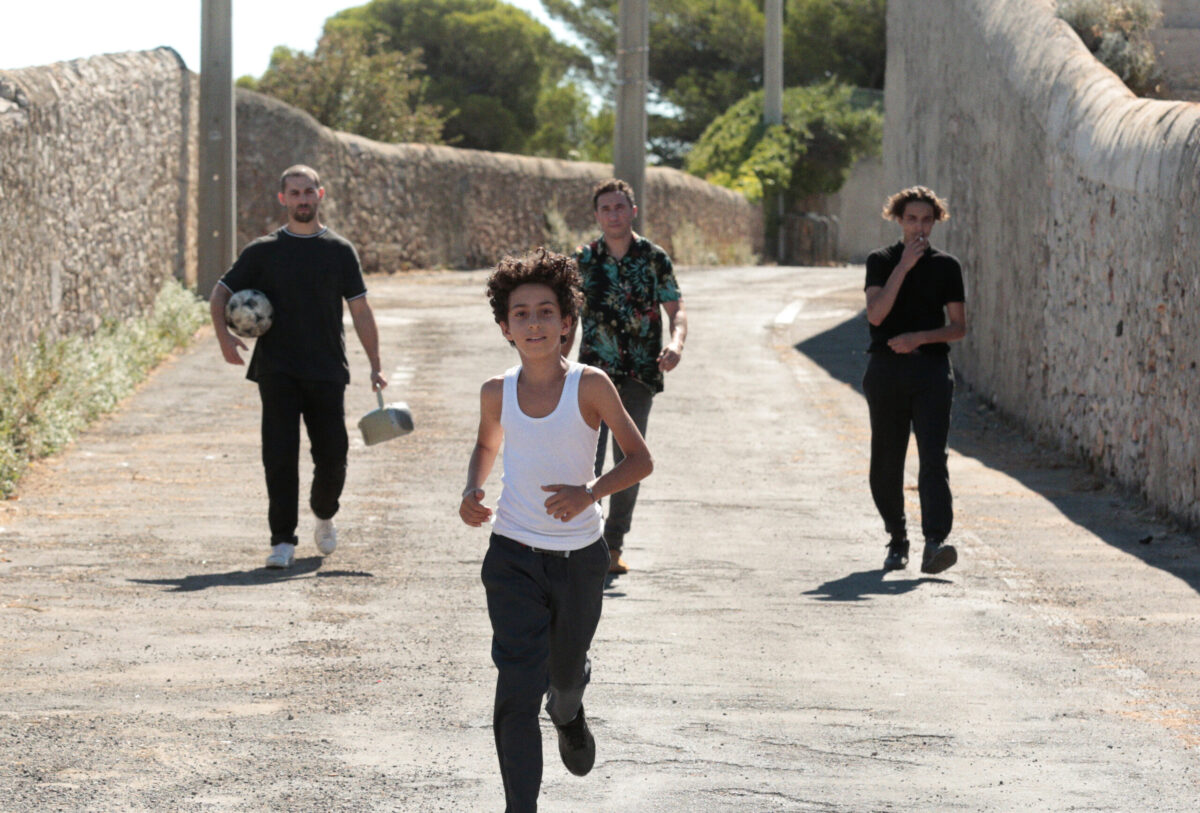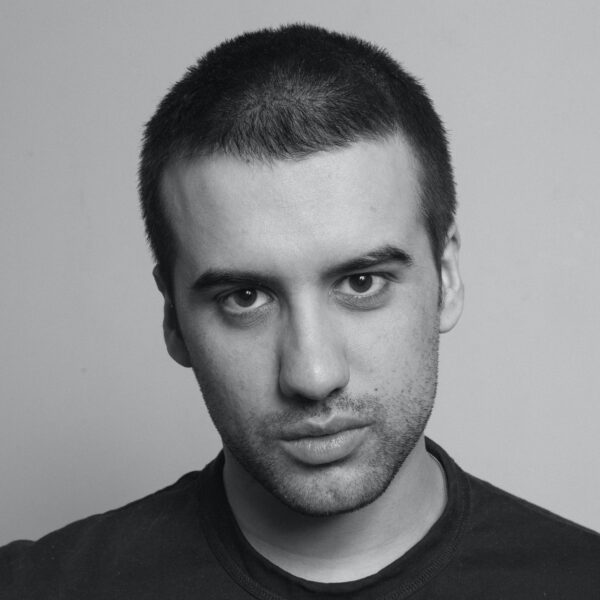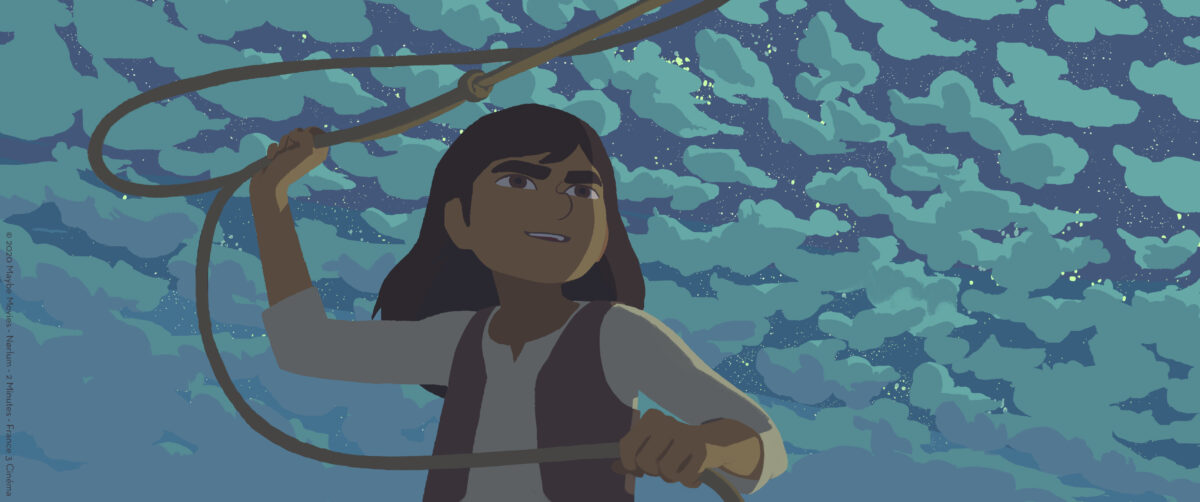Yohan Manca, the director of La Traviata, My Brothers and I, as interviewed by Piotr Czerkawski

Piotr Czerkawski: You are first and foremost a director, but you have also appeared on the other side of the camera. Did your acting experience come in handy on the set of La Traviata, My Brothers and I?
Yohan Manca: I acted only occasionally, but I must say that my experiences as an actor do help when I’m directing. Thanks to them, I can empathize with the actor, understand more or less what they feel in a given situation and what guidance they expect from the director. Half-joking, half-serious, I may say that my adventure with acting was above all a lesson in humility which made me respect the people in this profession even more. So many of them are much more talented than me!
How did you work with the actors of La Traviata...? Did you have long rehearsals with them before entering the set or did you rather encourage them to improvise?
I tried to do both. While I was open to improvisation, I remembered to be careful not to overdo it or stray too far from the original intention. For a long time, I’ve felt that improvisation is a bit like skiing: sometimes you can steer off the beaten track, but then you have to get back on it, otherwise you’re in danger.
Usually, directors can be divided into two categories: those who are in their element on set and those for whom shooting a film is the most thankless and stressful part of the creative process. Which group do you belong to?
Neither of them. For me, the only moment in a director’s work which brings you real joy is at the premiere, when the audience claps, showing you that your film wasn’t that bad. Everything else is, to a greater or lesser extent, suffering. I know that doesn’t sound very motivating, but what can I say… I really feel this way.
Which scene in La Traviata... was the most challenging for you to work on?
Probably the one in which Mo – one of the older brothers of the main character, Nour – begins to pick up an aging foreign tourist in the pool in front of his younger brother’s eyes, hoping he can get some money from her. This was an important scene in which Mo had to remain both charming and pathetic at the same time, disappointing all those who had previously seen him as the embodiment of unpretentiousness. It’s very difficult to create such ambivalence on screen and maintain it throughout a scene, so we knew that if we made one false move, all our efforts would be in vain. In the end, I don’t think it went too bad.
Definitely. The pool scene is my favourite moment in ole La Traviata... Also because I had previously let myself get fooled and – like Nour – had somewhat idealised the character of Mo.
It’s an understandable reaction, because Mo stands out from the rest of Nour’s brothers. He is the most sensitive, the cleverest, the funniest, but – as the scene at the pool shows – also the wildest one. I knew that such a character required special treatment, so I wrote this role especially for Sofian Khammes, a very talented actor who had already worked with Philippe Garrel and Romain Gavras.
The main theme in La Traviata... describes 14-year-old Nour’s emerging fascination with opera, which offers the character an escape from the overwhelming everyday reality. Did you yourself, as a teenager, experience any artistic revelation that had an impact on your life?
When I was 16 or 17, I regularly attended performances by the avant-garde theatre Le Théâtre du Soleil, directed by Ariane Mnouchkine. They were all very daring in terms of content – openly politically engaged, brilliantly reinterpreting French theatrical classics. They were also original in form, blurring the distinction between actors and audience, combining theatre with other arts such as cinema, dance and music. All this made a huge impression on me, provoked very lively reactions and certainly influenced my drive to become an artist myself.

Yohan Manca
In that case, it is probably no coincidence that La Traviata... is an adaptation of a play.
The play Pourquoi mes frères et moi on est parti, which La Traviata... is based on, appeared at about the same time as I was watching Mnouchkine’s performances, and aroused comparable delight in me. Although a good dozen years have passed since then, the question it poses: “How do you make sure you always make good choices and follow a path in life that gives you happiness?” still reverberates in my mind. For this reason, when I decided that I wanted to make my first feature film, I did not hesitate a single moment in choosing the subject.
Being so passionate about theatre, didn’t you want to make it also the passion of your main character, Nour?
From the beginning, I thought solely about opera, because of the character of Nour’s mentor, the singing teacher. I wrote this role especially for Judith Chemli. Judith is not only an actress, but also a great singer, and for a long time I wanted to make her voice audible through the cinema screen.
La Traviata... is one amazing love letter addressed to art, which is visible even in the closing credits, where you express your gratitude for inspiration to such artist as Martin Scorsese, Federico Fellini and – a bit less known – Ettore Scola. What fascinates you about the films of Scola?
Above all, the fact that he was able to talk about difficult issues that require great sensitivity in a way that was light hearted, funny and filled with an appetite for life. Scola is my god and not a single day goes by without me thinking of him at least for a moment.
In the credits you thank not only filmmakers, but also footballers. Football forms a part of the La Traviata… characters’ everyday life as well. Why is football so important to you?
Because it is what gave me my first joys and other strong emotions in my childhood, and today it is still able to pull me out of a sense of sadness and apathy. Also – and this is particularly important in the context of La Traviata... – football, like probably no other phenomenon, is able to unite people and to break down class barriers between them. I have no doubt that football is simply the most beautiful sport in the world.
Which footballer has been your greatest idol?
Of all the players in the world, without a doubt Diego Armando Maradona, but unfortunately I never had the opportunity to see him on the pitch. Of the footballers whose matches I have seen live, I place my bet on Xavi Hernandez Creus – Xavi of Barcelona. He is a great player, who would have a whole bag of Golden Balls to his credit, if it was not for the fact that he was up against a certain Portuguese Alien and a little Argentinean Elf.


